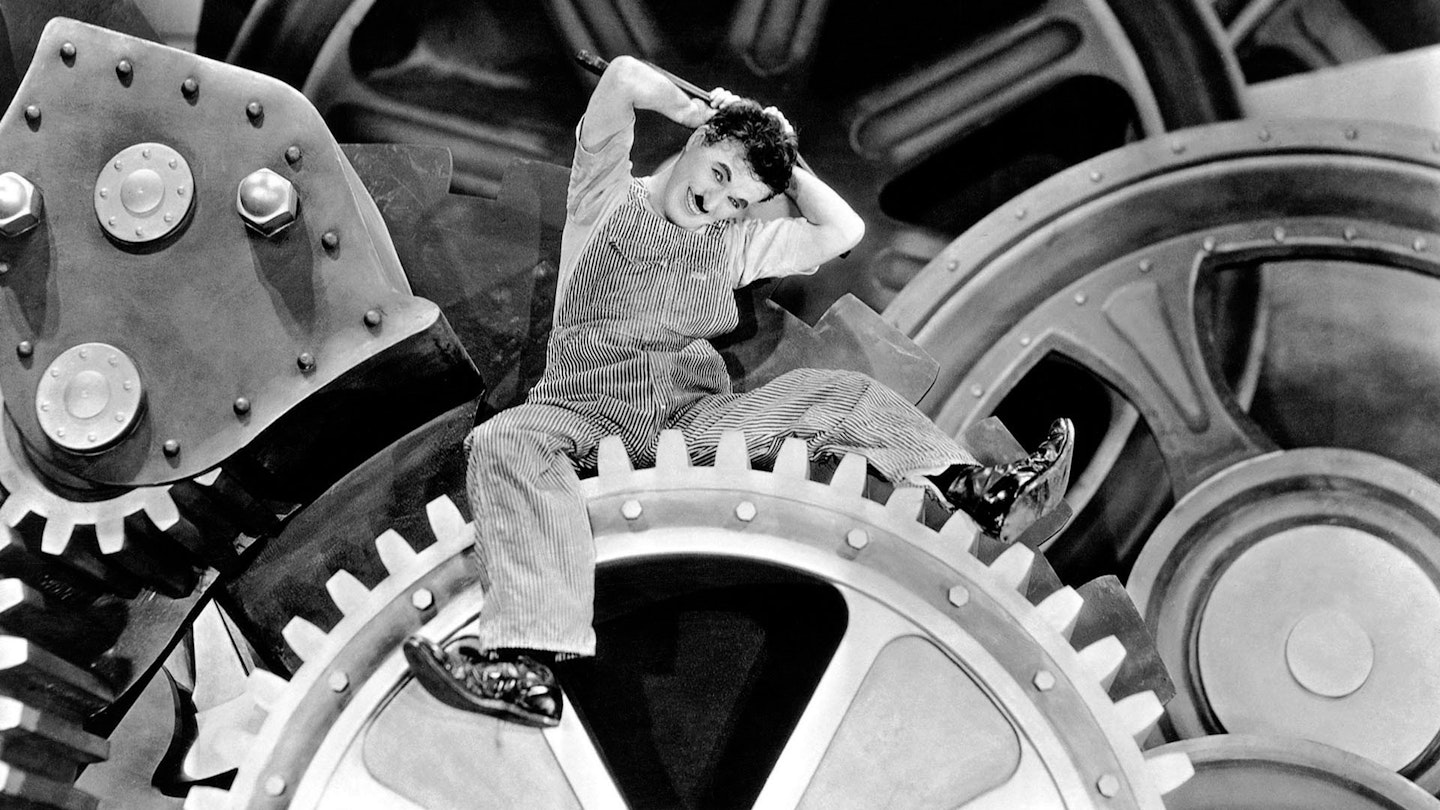It's presumed that Chaplin's key target in his swan song to the silent era, Modern Times, was the impact of the Depression and the dehumanising nature of industry. But it's as easy to see it as an attack on Hollywood's transformation into a film factory, which suppressed individual inspiration in favour of bankable movies for the masses.
Another myth worth dispelling is that it was a political statement reflecting Chaplin's radical views. This notion has arisen from references to such Soviet classics as Pudovkin's Mother (the scene in which Charlie picks up the red flag and finds himself at the head of a workers' demonstration) and the fictitious claims of Kremlin film chief Boris Shumyatsky that he persuaded Chaplin to append an anti-capitalist finale. The film's banning by the Fascists in Germany and Italy, and Chaplin's hounding by the House Un-American Activities Committee further fanned the flames of Communist collusion.
But Modern Times was nothing more than another instance of the Little Tramp taking on the system, as he had done throughout his career. Indeed, it has more in common with the liberal parables that Frank Capra was producing in the same period than with Stalinist agitprop. Equally, the scenes in which Charlie and Conklin get stuck in the machinery are as much a lampoon of Constructivist montage sequences like those in Eisenstein's Old And New than an endorsement of Stalin's Five-Year Plan, which was even more brutally exploitative than any fat cat enterprise in the West.
Chaplin clearly resented the way mechanised society had turned individuals into drones, and vented his disgust in the hilarious episodes with the conveyor belt and the automatic feeding machine. But he was also prepared to accept that labour was a means to an end, hence Charlie's scramble to secure a job at the re-opened factory to help the gamin realise her twee and shamelessly bourgeois dream of a cosy cottage.
This is an ambitious, accomplished and frequently uproarious comedy. The exuberant energy of Charlie's manic bolt-twisting at the factory, his hallucinatory heroics during the prison riot (prompted by someone slipping ëjoy powderí into a salt cellar), and his blindfold rollerskating balletics were remarkable for a 45 year-old who had been largely inactive for four years. Moreover, they proved that pantomime still had a place - even in an age of wisecracks and screwball.
